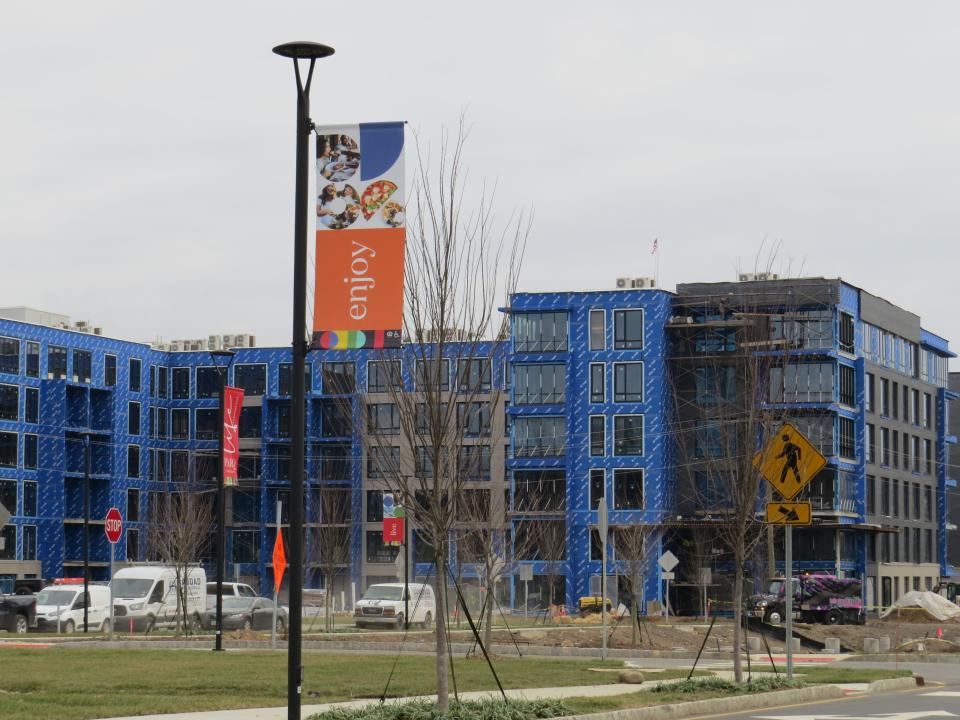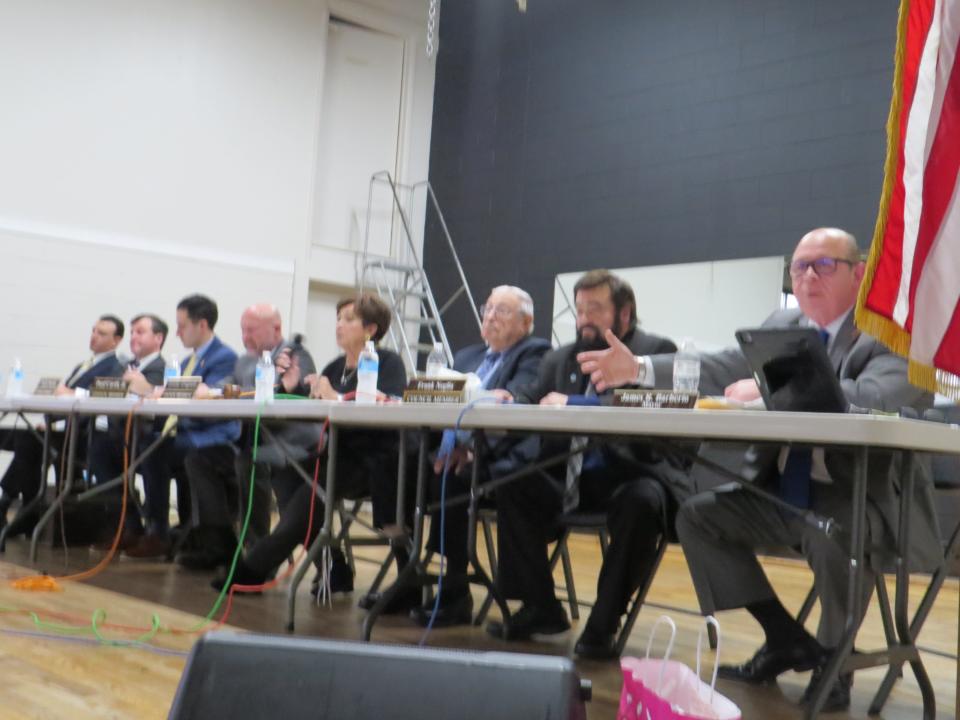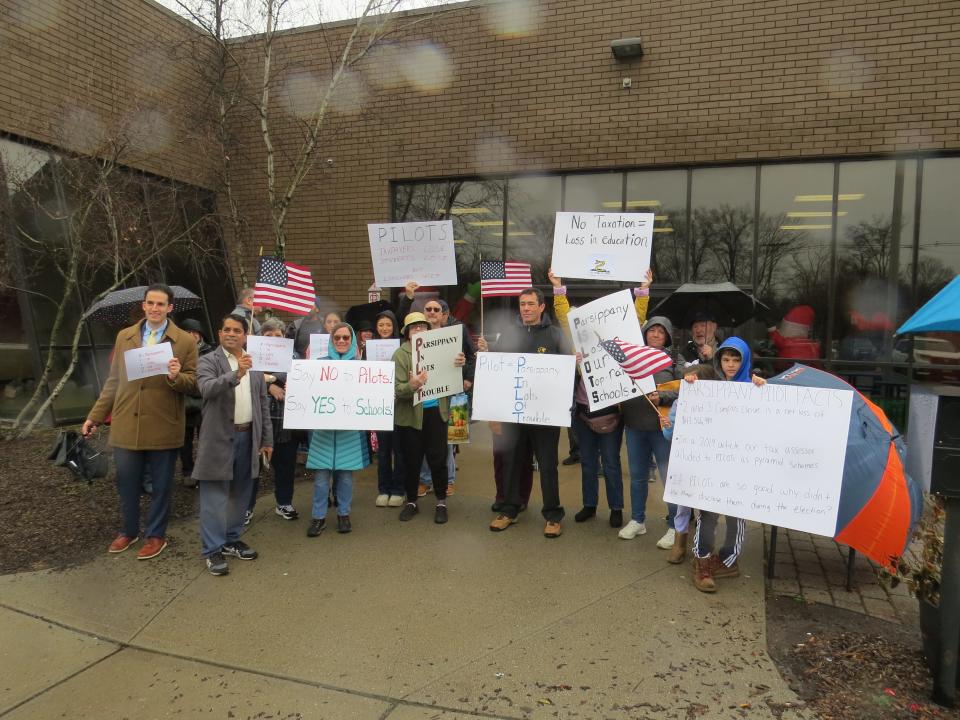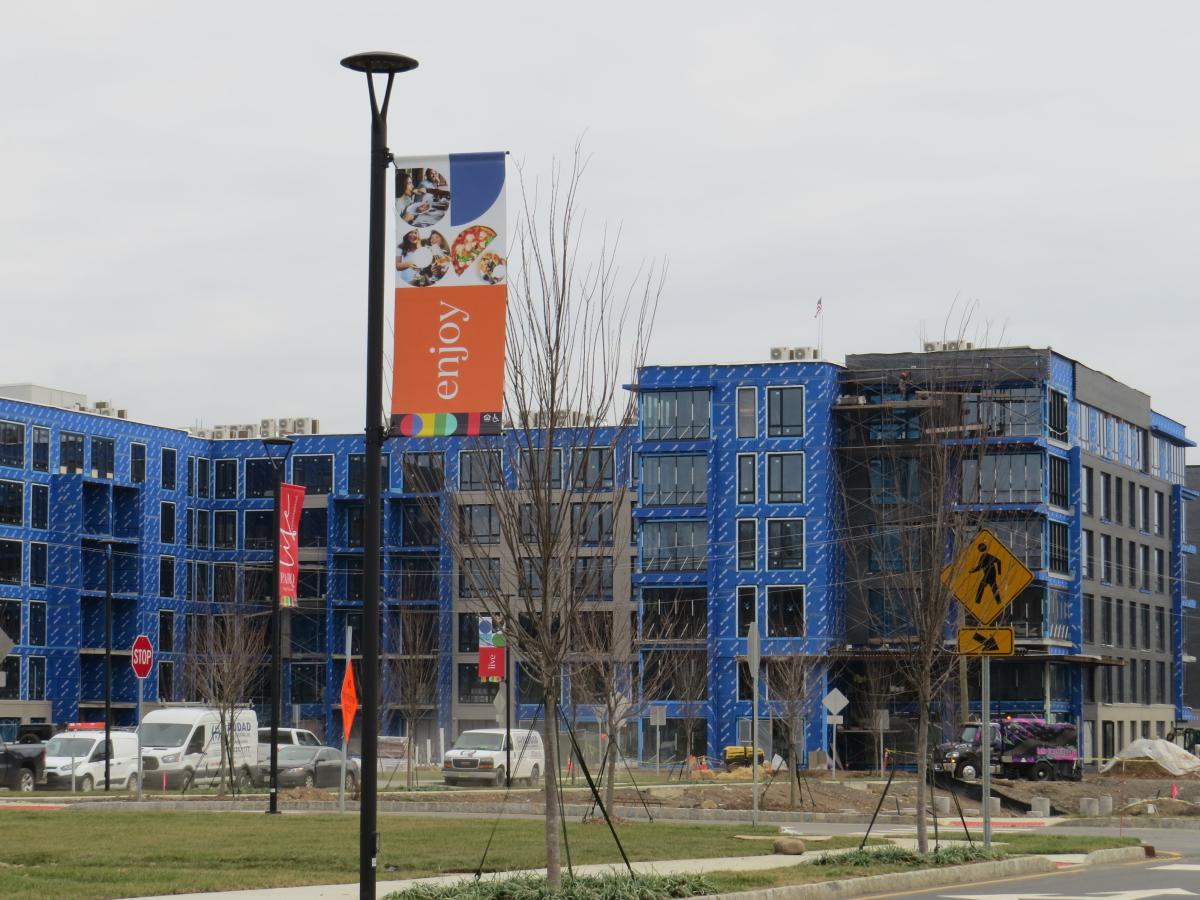Angered by a statement from Barberio last week celebrating a “substantial increase” in state school funding for Parsippany, the district issued a lengthy response, referring to it as “a decidedly one-sided version with only a fleeting embrace of reality.”
Barberio’s statement, appearing on the township website, says that “the residents and taxpayers of Parsippany have reason to celebrate” the expected state aid amount of $12,069,785 for the upcoming school year, “which is an increase of 13.95% over last year’s amount.”
“We are thrilled to see this boost in funding for our schools and are grateful to the state legislators and policymakers who worked to prioritize education in the budget,” Barberio wrote. “We look forward to the members of the Board of Education effectively allocating these funds and continuing to find ways to alleviate the burden on our taxpayers.”
Thursday, Barberio responded to the district’s criticism with a new statement to the Daily Record.
“The Board of Education’s overreaction to a compliment is a very strange and unnecessarily political response,” Barberio wrote. “A back-and-forth about this is not productive, so I’ll just reiterate that I take great pride in seeing good things happen for our residents.”
Barberio noted the state aid increase comes even as the state reduced funding in more than 140 districts.
“Governing responsibly is about building bridges and being good examples for our residents, particularly our children, who deserve us to act as role models,” he wrote.
School board would ground ‘PILOTs’
The district statement revisits a controversy that reflects a statewide trend — awarding tax breaks known as “payment in lieu of taxes,” or PILOTS — to developers willing to redevelop Parsippany’s glut of vacant office buildings into modern commercial and residential facilities.
Under a PILOT agreement, the town waives the developer’s property tax requirement and instead negotiates an annual payment that is usually much lower.

Parsippany currently has more than half a dozen PILOTs approved. Some of those projects — including The District at 15Fifteen — are already well under construction. Other projects under consideration include warehouse and industrial facilities that are hot sellers in the current commercial market.
But opponents of PILOTs — including board members who have repeatedly confronted the mayor and council on the issues in public meetings — oppose the tax discounts embedded in the deals because they also cut school district revenue that would have been generated by school property tax payments.


One of those meetings, convened during a Christmas vacation weekday afternoon, drew about 800 residents who mostly spoke against PILOTS during the marathon seven-hour session.
The board response to Barberio also notes the $1.4 million increase in state school aid for 2024-2025 represents less than 1% of the district’s proposed budget of $182 million and is “far less than the loss of annual tax revenue from even one of the approved PILOT projects recently pushed by the mayor and Town Council.”
Pro-PILOT argument
While the mayor and majority council defend PILOTs as a necessary tool to attract developers in the current market, Barberio has also said the school district will receive its full funding simply by submitting a bill.
“The Board of Education is guaranteed its budget regardless of what the municipality collects” in a PILOT, according to a section on the township website devoted to PILOTs. “Each year, the school district receives 100% of its budget (with annual increases capped at 2%) through traditional taxation. Changes in municipal receipts to the positiveor negative do not affect that budget.”


Several other Morris County mayors have embraced PILOT programs, including Dover Mayor James Dodd.
“I think PILOTs are the only way do development now,” Dodd said. “There has to be a benefit for the municipality and the developer as well. It has to be a win-win for both.”
Barberio said at one meeting, “I don’t like to do PILOTs if I don’t have to,” but developers will turn to other towns more willing to strike a PILOT deal. “Hanover, Florham Park, Boonton — they are our competitors now.”
“I don’t want to do PILOT programs, but if we don’t do something, I’ll tell the board members, you get no money,” Barberio continued. “It’s that simple.”
PILOT pushback
The Parsippany school district, however, has repeatedly expressed objections to the PILOTs and also concerns about the increased student enrollment that will come with increased residential development.
Three residential developments under construction in Parsippany alone total more than 1,400 units. Those same developers come to negotiations with towns armed with the advantages they can exploit by helping towns fulfill their court-mandated affordable housing mandates.
In fact, many PILOT-approved projects across the state have been fueled in part by the state Supreme Court’s 1975 Mount Laurel Doctrine which found the state constitution requires New Jersey municipalities to provide their “fair share” of low and moderate-income housing, and to remove any exclusionary zoning.
Another ruling in 2015 shifted oversight of those obligations to the state courts. That’s allowed builders to seek approvals for large projects from local judges as long as 20% of the units would qualify as low-income housing.
“The unfunded burdens caused by PILOT projects will negatively impact the school district for the next 30 years,” the district wrote. “It is also worth noting that state and federal grants, which are distinct from federal and state aid, are $600,000 lower than last year.”
The district has one ally on the all-Republican Township Council. Justin Musella has led the pushback against PILOTs, voting against the deals and hosting town halls on the subject.
When developers get tax breaks, “Who makes up that difference?” Musella asked during one PILOT vote last year, speaking to residents who packed the meeting. “You get to make up this difference. Not only for this building, but for the other five buildings that are also receiving PILOTs.”
“A strong public school is the bedrock of a healthy community,” said school board member Andrew Choffo. “In Parsippany, our bedrock is being threatened by municipal fiscal policy that is over-reliant on PILOTs. We need an open dialogue with the mayor about this issue, and to date, that has not occurred.”
This article originally appeared on Morristown Daily Record: Parsippany mayor, board renew fight over developer tax breaks
